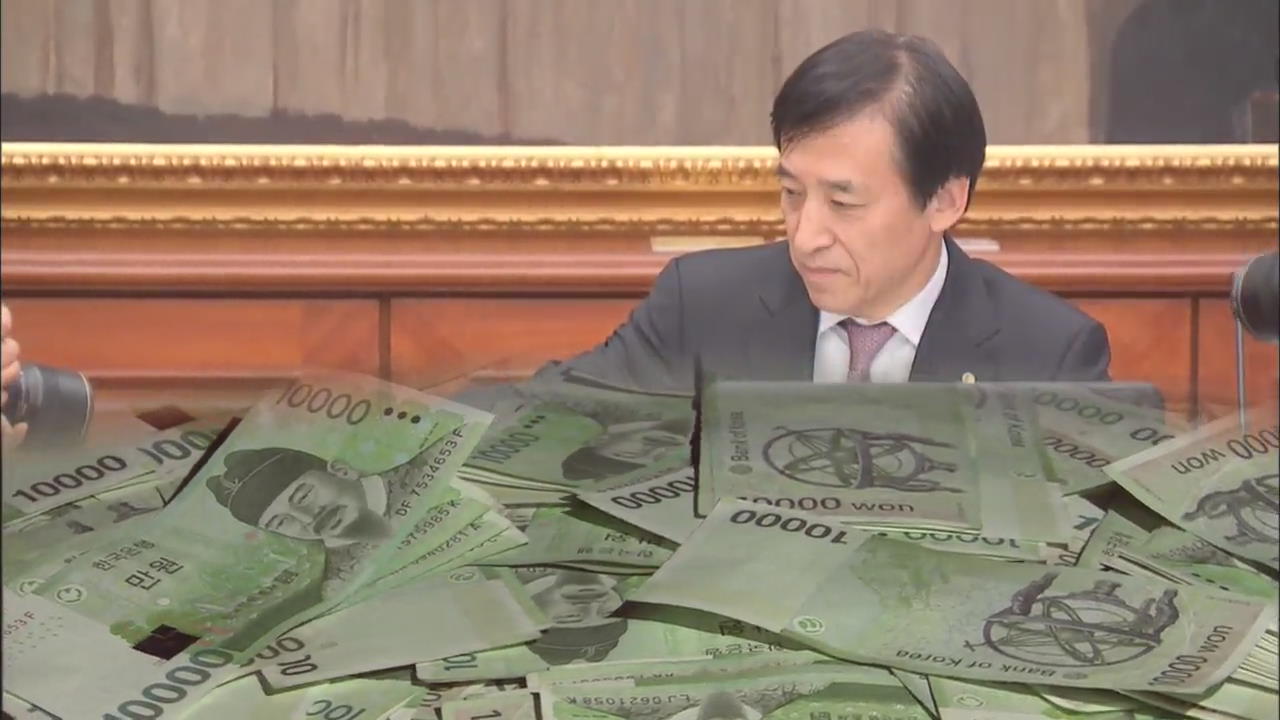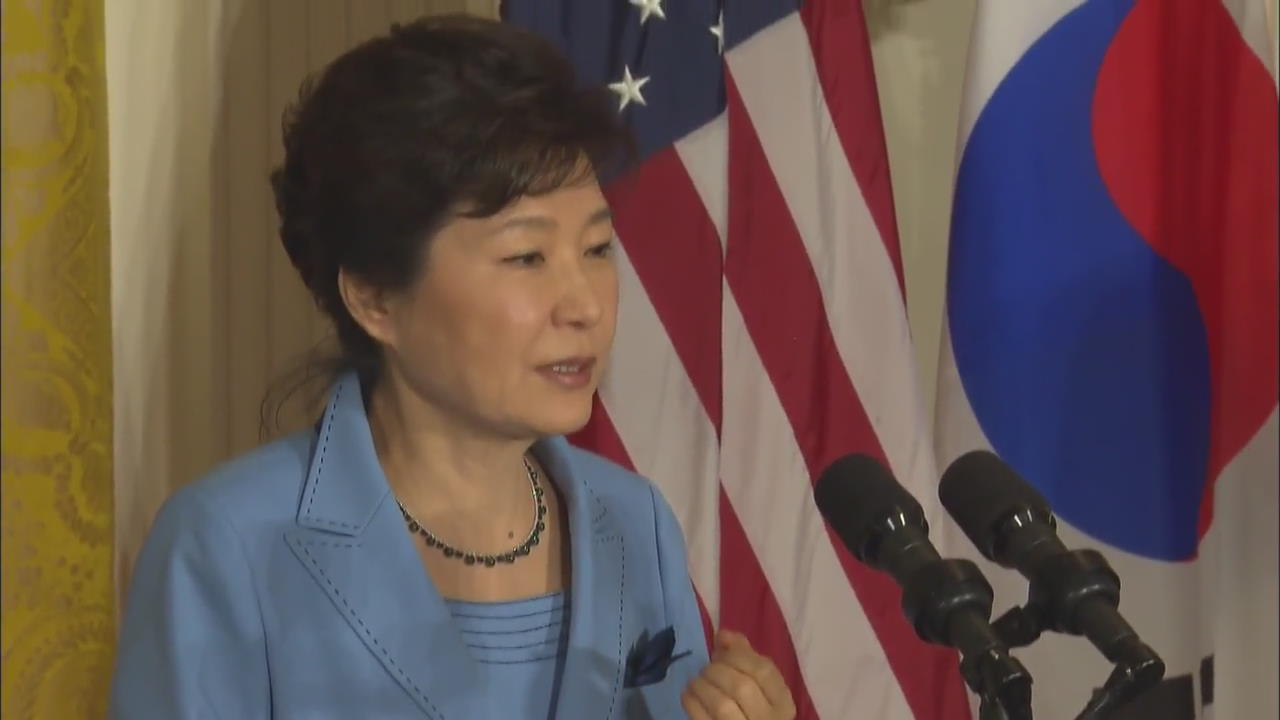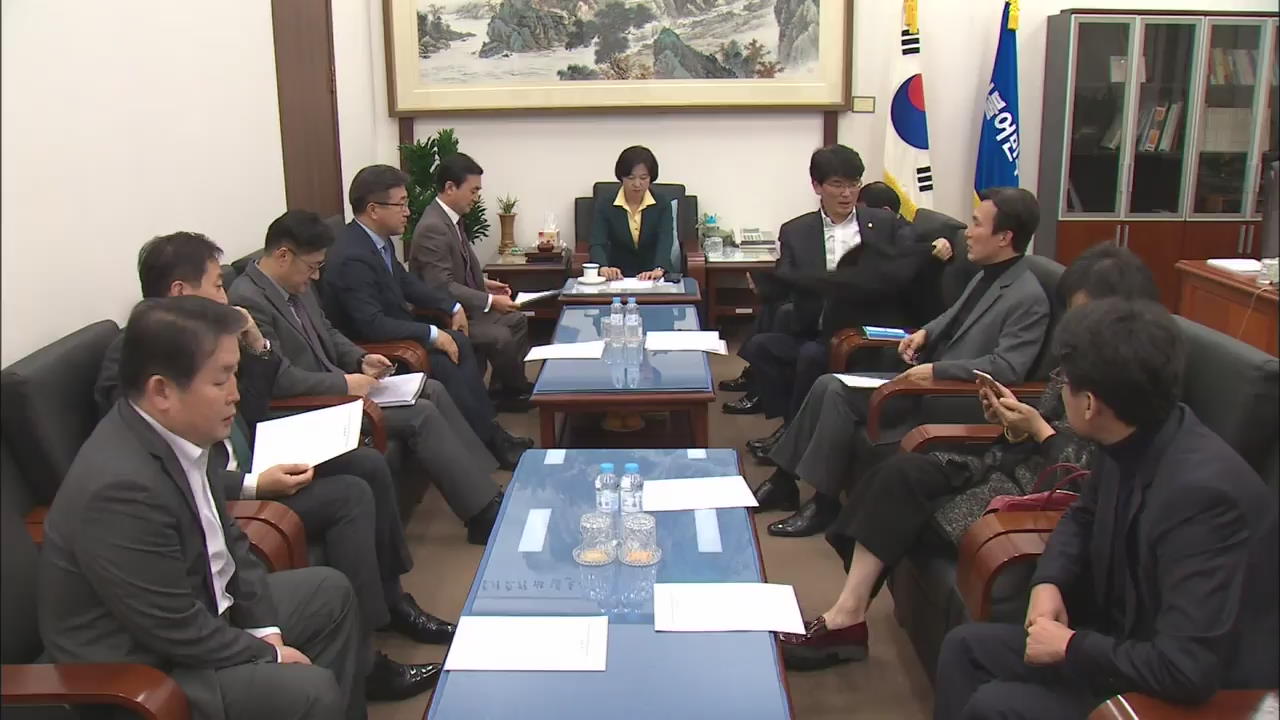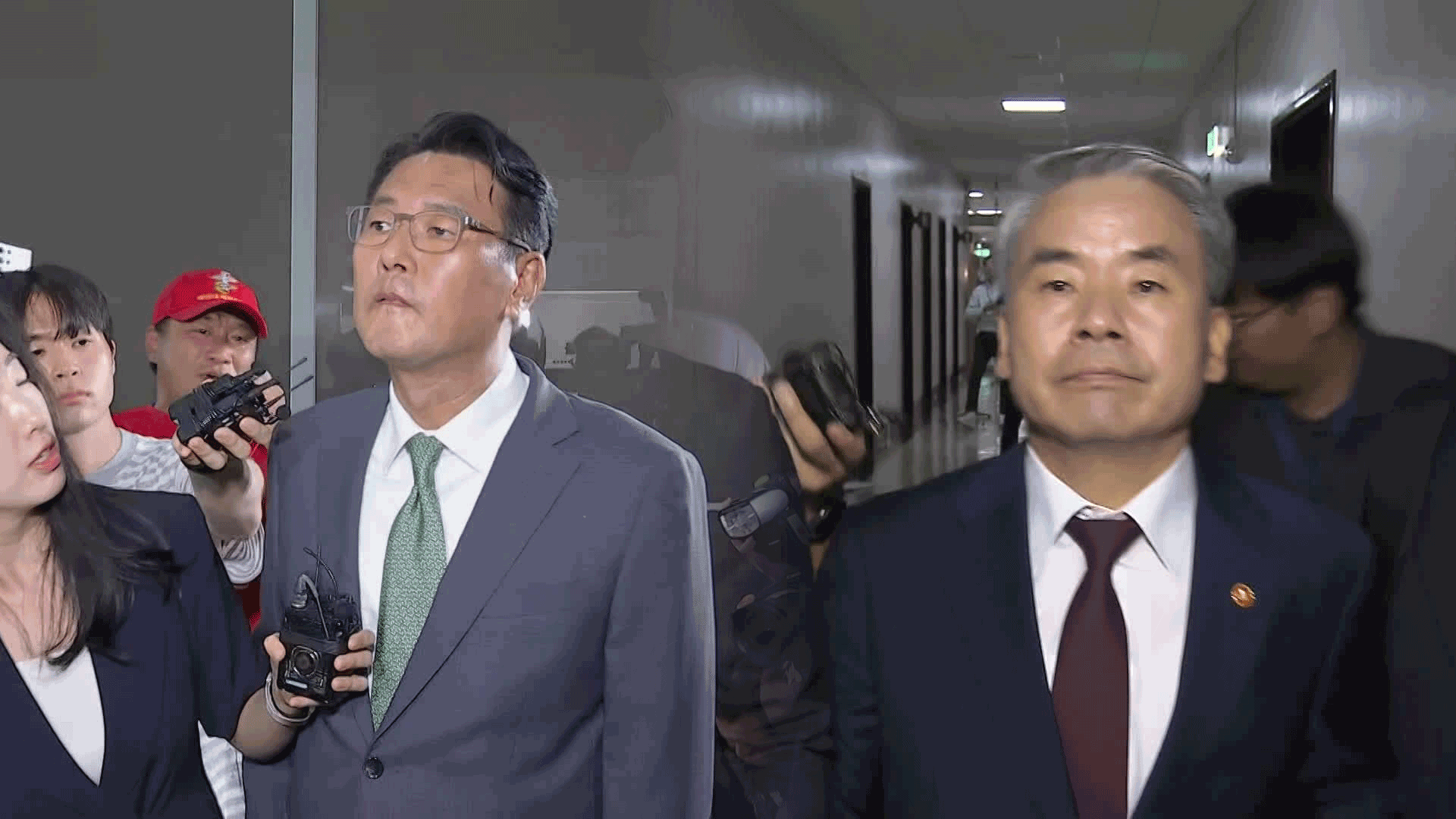Trade Uncertainty
입력 2016.11.10 (14:13)
수정 2016.11.10 (14:38)
읽어주기 기능은 크롬기반의
브라우저에서만 사용하실 수 있습니다.
[Anchor Lead]
With the surprising election of Donald Trump, a strong trade protectionist, as the next US president, changes are expected in US economic policies. Experts say that Korea should be prepared.
[Pkg]
"Not one thing is certain." So say the pundits with uncertainty emerging as the number one economic risk of Donald Trump's victory in the US presidential election. Nothing is clear on whether he will stay true to his campaign pledges such as carrying out petroleum-centered energy policies or lowering income tax rates. In a speech following confirmation of his victory, Trump said only that he will rebuild national infrastructure such as highways and airports. The biggest concern for now is to what degree the United States, the world's largest importer, will strengthen trade protectionism.If Trump follows his policy pledges to completely reconsider all free trade deals and begins to implement trade regulations against the powerful Chinese economy, the world economy could face a veritable "trade war." In this case, Korea's heavily export-dependent economy will suffer a direct blow.
[Soundbite] Yoo Il-ho(Deputy PM for Economic Affairs,Overseas Economy-related Ministers Meeting (Nov. 9)) : "Downside risks in the global economy are expected to rise due to uncertainty in U.S. economic policies. Thiscan cause negative ripple effects across the Korean economy."
However, there are forces opposing trade protectionism within the US Congress and industries. It's necessary for the Korean government to respond in a sophisticated and preemptive manner through its personnel networks in the U.S.
[Soundbite] Kim Hyeon-jong(Korea Economic Research Institute) : "The urgent priority is to set up a bilateral consultationbody for advance monitoring and continued dialogue, and also to identify what the U.S. wants."
With Trump's victory, it's also unclear whether the US Fed will raise key rates in December. Accordingly, the Bank of Korea must also be more flexible in its response measures.
With the surprising election of Donald Trump, a strong trade protectionist, as the next US president, changes are expected in US economic policies. Experts say that Korea should be prepared.
[Pkg]
"Not one thing is certain." So say the pundits with uncertainty emerging as the number one economic risk of Donald Trump's victory in the US presidential election. Nothing is clear on whether he will stay true to his campaign pledges such as carrying out petroleum-centered energy policies or lowering income tax rates. In a speech following confirmation of his victory, Trump said only that he will rebuild national infrastructure such as highways and airports. The biggest concern for now is to what degree the United States, the world's largest importer, will strengthen trade protectionism.If Trump follows his policy pledges to completely reconsider all free trade deals and begins to implement trade regulations against the powerful Chinese economy, the world economy could face a veritable "trade war." In this case, Korea's heavily export-dependent economy will suffer a direct blow.
[Soundbite] Yoo Il-ho(Deputy PM for Economic Affairs,Overseas Economy-related Ministers Meeting (Nov. 9)) : "Downside risks in the global economy are expected to rise due to uncertainty in U.S. economic policies. Thiscan cause negative ripple effects across the Korean economy."
However, there are forces opposing trade protectionism within the US Congress and industries. It's necessary for the Korean government to respond in a sophisticated and preemptive manner through its personnel networks in the U.S.
[Soundbite] Kim Hyeon-jong(Korea Economic Research Institute) : "The urgent priority is to set up a bilateral consultationbody for advance monitoring and continued dialogue, and also to identify what the U.S. wants."
With Trump's victory, it's also unclear whether the US Fed will raise key rates in December. Accordingly, the Bank of Korea must also be more flexible in its response measures.
■ 제보하기
▷ 카카오톡 : 'KBS제보' 검색, 채널 추가
▷ 전화 : 02-781-1234, 4444
▷ 이메일 : kbs1234@kbs.co.kr
▷ 유튜브, 네이버, 카카오에서도 KBS뉴스를 구독해주세요!
- Trade Uncertainty
-
- 입력 2016-11-10 14:14:54
- 수정2016-11-10 14:38:14

[Anchor Lead]
With the surprising election of Donald Trump, a strong trade protectionist, as the next US president, changes are expected in US economic policies. Experts say that Korea should be prepared.
[Pkg]
"Not one thing is certain." So say the pundits with uncertainty emerging as the number one economic risk of Donald Trump's victory in the US presidential election. Nothing is clear on whether he will stay true to his campaign pledges such as carrying out petroleum-centered energy policies or lowering income tax rates. In a speech following confirmation of his victory, Trump said only that he will rebuild national infrastructure such as highways and airports. The biggest concern for now is to what degree the United States, the world's largest importer, will strengthen trade protectionism.If Trump follows his policy pledges to completely reconsider all free trade deals and begins to implement trade regulations against the powerful Chinese economy, the world economy could face a veritable "trade war." In this case, Korea's heavily export-dependent economy will suffer a direct blow.
[Soundbite] Yoo Il-ho(Deputy PM for Economic Affairs,Overseas Economy-related Ministers Meeting (Nov. 9)) : "Downside risks in the global economy are expected to rise due to uncertainty in U.S. economic policies. Thiscan cause negative ripple effects across the Korean economy."
However, there are forces opposing trade protectionism within the US Congress and industries. It's necessary for the Korean government to respond in a sophisticated and preemptive manner through its personnel networks in the U.S.
[Soundbite] Kim Hyeon-jong(Korea Economic Research Institute) : "The urgent priority is to set up a bilateral consultationbody for advance monitoring and continued dialogue, and also to identify what the U.S. wants."
With Trump's victory, it's also unclear whether the US Fed will raise key rates in December. Accordingly, the Bank of Korea must also be more flexible in its response measures.
With the surprising election of Donald Trump, a strong trade protectionist, as the next US president, changes are expected in US economic policies. Experts say that Korea should be prepared.
[Pkg]
"Not one thing is certain." So say the pundits with uncertainty emerging as the number one economic risk of Donald Trump's victory in the US presidential election. Nothing is clear on whether he will stay true to his campaign pledges such as carrying out petroleum-centered energy policies or lowering income tax rates. In a speech following confirmation of his victory, Trump said only that he will rebuild national infrastructure such as highways and airports. The biggest concern for now is to what degree the United States, the world's largest importer, will strengthen trade protectionism.If Trump follows his policy pledges to completely reconsider all free trade deals and begins to implement trade regulations against the powerful Chinese economy, the world economy could face a veritable "trade war." In this case, Korea's heavily export-dependent economy will suffer a direct blow.
[Soundbite] Yoo Il-ho(Deputy PM for Economic Affairs,Overseas Economy-related Ministers Meeting (Nov. 9)) : "Downside risks in the global economy are expected to rise due to uncertainty in U.S. economic policies. Thiscan cause negative ripple effects across the Korean economy."
However, there are forces opposing trade protectionism within the US Congress and industries. It's necessary for the Korean government to respond in a sophisticated and preemptive manner through its personnel networks in the U.S.
[Soundbite] Kim Hyeon-jong(Korea Economic Research Institute) : "The urgent priority is to set up a bilateral consultationbody for advance monitoring and continued dialogue, and also to identify what the U.S. wants."
With Trump's victory, it's also unclear whether the US Fed will raise key rates in December. Accordingly, the Bank of Korea must also be more flexible in its response measures.
이 기사가 좋으셨다면
-
좋아요
0
-
응원해요
0
-
후속 원해요
0

















이 기사에 대한 의견을 남겨주세요.